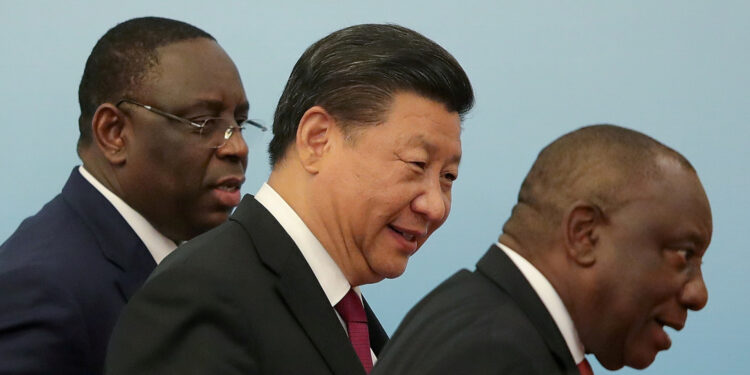As China prepares to host African leaders next month for the Forum on China-Africa Cooperation, attention is focused on Beijing’s investments and loans on the continent.
While a study shows an increase in Chinese lending to Africa last year, a French website points to the negative economic effects of these debts and investments.
study
Chinese lenders approved $4.61 billion in loans to Africa last year, including a cash facility of about $1 billion to Egypt’s central bank, the first annual increase since 2016, an independent study showed on Thursday.
Africa received more than $10 billion in loans annually from China between 2012 and 2018 under President Xi Jinping’s Belt and Road Initiative, but lending has fallen sharply since the start of the coronavirus pandemic in 2020.
The study, conducted by the Center for Global Development Policy at Boston University in the United States, showed that the volume of lending last year, which increased by more than three times what was recorded in 2022, shows China’s keenness to reduce the risks associated with debt-laden economies.
The new data comes as Beijing prepares to host leaders from African countries next week for the Forum on China-Africa Cooperation, which is held every three years, on September 4.
Among the largest loans extended last year was a nearly $1 billion loan from the China Development Bank to Nigeria for a railway project, and a similarly sized cash facility to the Central Bank of Egypt.
Over the past few years, China has jumped to the top spot in bilateral lending to many African countries such as Ethiopia.
The study found that nearly a tenth of the loans provided in 2023 were for three solar and hydropower projects, which illustrates China’s desire to move to financing renewable energy instead of coal-fired power plants.
Crisis escalation
From another angle, the French website “Coin Tribune” said that while China describes the Belt and Road Initiative as an opportunity to achieve joint economic development, reports reveal that these investments have exacerbated economic crises in many African countries, making it appear more like neo-colonialism than an economic partnership.
Figures cited by the website indicate that China has invested more than a trillion dollars in infrastructure projects around the world as part of the Belt and Road Initiative. However, the results of these investments in Africa appear worrying, as many of the projects financed by Beijing suffer from poor planning and implementation, which increases the economic burdens on the recipient countries.
For example, more than 500 defects were discovered in a Chinese-funded hydropower plant in Uganda, while in Angola residents are suffering from structural problems in social housing built with Chinese support, according to the Queen Tribune.
At some point, the Chinese government realized that the projects were a failure, and that it would have to choose between losing a lot of money and upsetting a lot of other countries.
Reports show that African countries that have received Chinese investments find themselves drowning in debt without realizing the desired economic benefits.
control
According to CoinTribune, China not only provides loans to build projects, but also imposes control over these projects if the recipient countries fail to repay the debts.
Growing debt is not the only challenge facing African countries as a result of Chinese investments, says Quinn Tribune, as Chinese-funded projects also raise political and economic tensions in the region.
Moreover, China is accused of over-exploiting Africa’s natural resources for its own benefit, leaving African countries dependent on Chinese investment without achieving real sustainable development.



